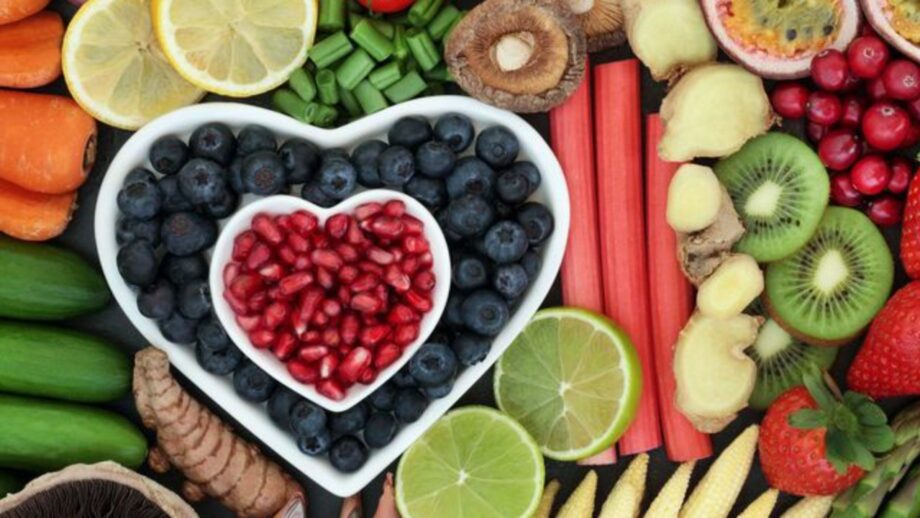When you’re feeling low, it’s easy to turn to food to make you feel better. However, the sugary, high-calorie sweets to which many people turn have their own set of detrimental repercussions.
As a result, you may be wondering if there are any nutritious foods that will help you feel better.
Recently, there has been an increase in studies on the link between nutrition and mental health. However, numerous things can influence mood, including stress, the environment, lack of sleep, genetics, mental disorders, and dietary inadequacies.
As a result, determining if food can help you feel better is challenging.
Nonetheless, studies have demonstrated that certain meals can help with overall brain health and specific forms of mood problems.
Here are some healthful foods that can help you feel better.
1. Fatty fish
Omega-3 fatty acids are a type of important fats that your body cannot create on its own and must be received from your diet.
Fatty fish like salmon and albacore tuna are high in omega-3 fatty acids called docosahexaenoic acid (DHA) and eicosapentaenoic acid (EPA), which have been associated with reduced depression.
Omega-3s appear to play a critical function in brain development and cell signaling by contributing to the fluidity of your brain’s cell membrane.
While the evidence is varied, one analysis of clinical trials found that ingesting omega-3s in the form of fish oil reduced depression scores in certain studies.
Although no standard dose exists, most experts agree that most adults should consume at least 250–500 mg of combined EPA and DHA each day.
Salmon delivers 2,260 mg of EPA and DHA every 3.5-ounce (100-gram) serving, so eating it a few times a week is an excellent way to get these fats into your diet.
2. Dark chocolate
Many mood-enhancing chemicals can be found in chocolate.
Because sugar is a quick source of fuel for your brain, it may increase your mood.
It may also unleash a cascade of feel-good chemicals like caffeine, theobromine, and N-acylethanolamine, a structurally related molecule to cannabis that has been associated with enhanced mood.
Some experts, however, question whether chocolate contains enough of these substances to elicit a psychological reaction.
Regardless, it’s high in mood-regulating flavonoids, which have been shown to increase blood flow to the brain, reduce inflammation, and improve brain function.
Finally, chocolate has a high hedonic rating, which means that its pleasant flavor, texture, and aroma may also help to improve mood.
Dark chocolate, which is higher in flavonoids and lowers in added sugar, is preferable to milk chocolate because it contains extra elements like sugar and fat. Because it’s a high-calorie snack, you should still limit yourself to 1–2 little squares at a time.
3. Fermented foods
Kimchi, yogurt, kefir, kombucha, and sauerkraut are examples of fermented foods that may boost gut health and happiness.
Fermentation allows live bacteria to flourish in meals, allowing them to convert carbohydrates into alcohol and acids (14Trusted Source).
Probiotics are generated during this procedure. These live microorganisms promote the growth of beneficial bacteria in your stomach and may help you feel happier (15Trusted Source, 16Trusted Source).
Because of the boiling and filtration processes, not all fermented foods, such as beer, some breads, and wine, are substantial sources of probiotics.
Serotonin is a neurotransmitter that impacts mood, stress response, appetite, and sexual drive, among other things. Your gut microbiome, or the collection of healthy bacteria in your gut, produces up to 90% of your body’s serotonin.
Furthermore, the gut microbiome impacts brain health. A link between healthy gut bacteria and decreased rates of depression is starting to emerge in research.
More research is required to completely comprehend how probiotics may affect mood.
4. Berries
Surprisingly, eating more fruits and vegetables has been associated with lower depression rates (29Trusted Source, 30Trusted Source).
Antioxidant-rich foods may help regulate inflammation linked to depression and other mood disorders, while the mechanism is unknown (31Trusted Source).
Berries are high in antioxidants and phenolic compounds, which help to fight oxidative stress, which is caused by an imbalance of damaging substances in the body.
They’re especially high in anthocyanins, the pigment that gives purple-blue berries their color. A diet high in anthocyanins was linked to a 39 percent lower risk of depression symptoms in one study.
If fresh berries aren’t there, try frozen berries, which are frozen at the peak of ripeness to have the most antioxidants.


